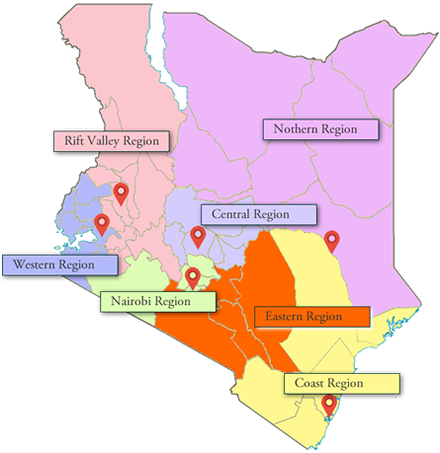Awareness and Extent of Counterfeiting in Kenya Consumer-Level Survey Report 2025
Research on Levels of Awareness and Extent of Counterfeiting in Kenya Consumer-Level Survey Report 2025
 Counterfeiting is a growing global issue that undermines brand integrity, erodes consumer trust, and causes significant economic losses. This research sought to evaluate the extent and level of public awareness regarding counterfeiting in Kenya using a mixed-methods approach that combined quantitative surveys and qualitative interviews for a
Counterfeiting is a growing global issue that undermines brand integrity, erodes consumer trust, and causes significant economic losses. This research sought to evaluate the extent and level of public awareness regarding counterfeiting in Kenya using a mixed-methods approach that combined quantitative surveys and qualitative interviews for a
comprehensive analysis. The study was conducted across eight counties, with a focus on key counterfeit hotspots such as Nairobi, Mombasa, and Kisumu, as identified by the
baseline survey done by Anti-counterfeit Authority in 2020, involving a sample of 2,185 respondents determined using Cochran's formula. Data collection utilized Computer-
Assisted Personal Interviews (CAPI) through Kobo Toolbox, which ensured data accuracy and real-time monitoring, while research tools were standardized using the WIPO
Consumer Survey Toolkit.
The findings revealed that general awareness of counterfeiting is relatively high at 83.85%, with significant regional variations. Busia (98%) and Machakos (90.8%) reported the highest awareness levels, while Garissa (66.7%) and Mombasa (63.6%) lagged behind. Sector- specific awareness showed that consumers are most informed about counterfeiting in agriculture (39.52%), alcoholic drinks (36.57%), and cosmetics (33.99%), whereas awareness was significantly lower in the paper and board (8.97%) and timber (5.13%) sectors.
Consumers primarily gained information from brand knowledge (70.87%) and advertisements (54.28%), but the limited reach of ACA forums (8.61%) highlighted the need for alternative outreach strategies.



